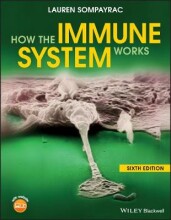Cancer screening
14 important questions on Cancer screening
What is your risk to get CRC?
1x first degree relative - 6%
and 1x second degree relati
etc
What is the epidemiology of CRC
- 5-year survival CRC
- without metastasis 93%
- positive lymphonedes 38%
- liver metastasis 8%
- At diagnosis 40% already has metastasis
What is Fecal immunochemical testing (FIT)
- Can identify as little as 0.3 ml of daily blood in the stool
- Is less sensitive for occult blood from the stomach and upper small intestine
- Thus the FIT test is much more specific for bleeding from the colon or lower gastrointestinal tract than alternatives
- Higher grades + faster learning
- Never study anything twice
- 100% sure, 100% understanding
What are problems and confounders of the FIT test?
- Hemoglobin in faeces disintegrates, so the longer you store faeces and at higher temperatures, the less hemoglobin is measured
- The population screening will start with a cut-off value of 88 ng/ml. The theoretical expectation is that approximately 6.5% will be referred for a colonoscopy
- Other colon diseases can also give a positive test (IBD, Hemorrhoids)
- Quality of endoscopist and equipment
- A large part of the population will not participate
What are the ROC curves
- In an ROC curve, the true positive rate is plotted in function of the false positive rate for different positivity thresholds of a quantitative test
What are some limitations for the screening (of CRC)
- May be a challenge logically
- Healthcare must be geared to it
- The interval between screening test must be adequate
Two types of endoscopic treatment
- Pedenculated polyps
- sessile or flat polyps
What are the treatments of CRC
- Endoscopic treatment (stage 0-2)
- Polypectomy by electric snare coagulation
- Endoscopic mucosal resection/dissection
- Surgical treatment (stage 3-4)
- Sigmoidectomy
- Hemi-colectomy (R or L)
- Subtotal colectomy
- Trans anal total mesolectal excision
- Proctectomy (with abdominal stoma)
- Hemi-hepatectomy (metastasis)
- Surgical techniques
- Laparoscopy and resection
- Open Laparotomy and resection
- Trans anal resection
What is an oncological health care path?
What is the health car path of CRC what is in it
- Guidance and information regarding bed news conversation
- Prepare medical / nursing file
- Screening
- Nutritional and physical status
- Geriatrics (in older patients)
- Need for psychosocial support
- If necessary, referral to other care providers
- Discuss Research
- Planning of the operation
- Sign up for multi disciplinary meeting to discuss the best treatment
Who is present at the multidisciplinary consultation
- Surgeon
- discuss PA and staging results
- discuss treatment plan, risks, complications
- Gastroenterologist
- Internist / oncologist
- in case of chemotherapy or radiotherapy
- Radiologist
- Radiotherapist
- in case of chemotherapy or radiotherapy
- Pathologist
- Geriatrician
- Ostomy nurse
- Research nurse
- Nurse specialist
- Anesthesiologist
- preoperative screening
- medication check
- Intake (stoma) nurse
- information health care track and recovery
- if necessary information on stoma
- nursing affairs
- discussing distress thermometer
Where is looked at when screening for psychosocial care
- Practical
- Family/social
- Emotional
- Religious / spiritual
- Physically
- Fatigue
- Other problems
Questionnaire
- Distress thermometer
- CIT (checklist individual tension)
Who is present at the consultation of psychosocial care
- Nurse specialist / consultant
- Psychologist
- Social worker
- Physiotherapist
- Dietitian
What are the appointments after dismission?
- 2 week after discharge
- surgeon
- results of tissue research + results multidisciplinary team
- medical check-up
- 6 weeks after discharge
- nurse specialist
- evaluation recording
- medical / nursing check-up
- explanation follow-up schedule
- scientific research, if necessary. Referral research nurse
- referral for genetic testing if necessary
- make follow-up appointments for follow-up checks
The question on the page originate from the summary of the following study material:
- A unique study and practice tool
- Never study anything twice again
- Get the grades you hope for
- 100% sure, 100% understanding





























